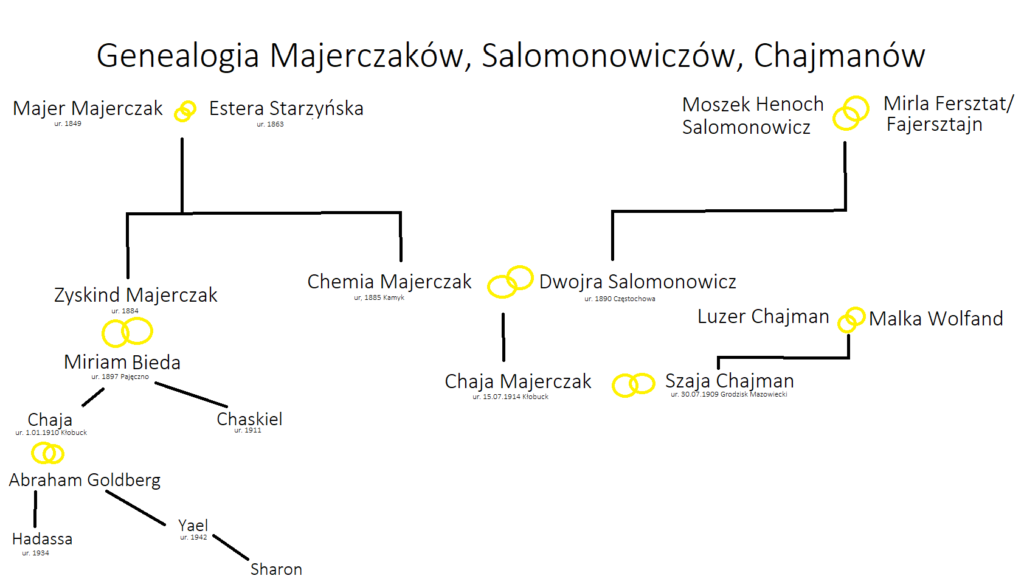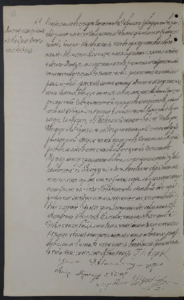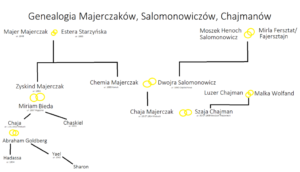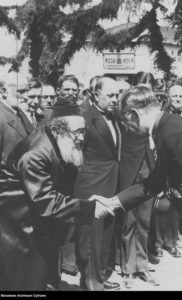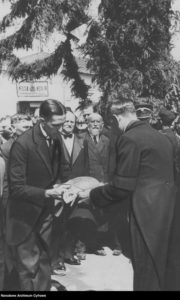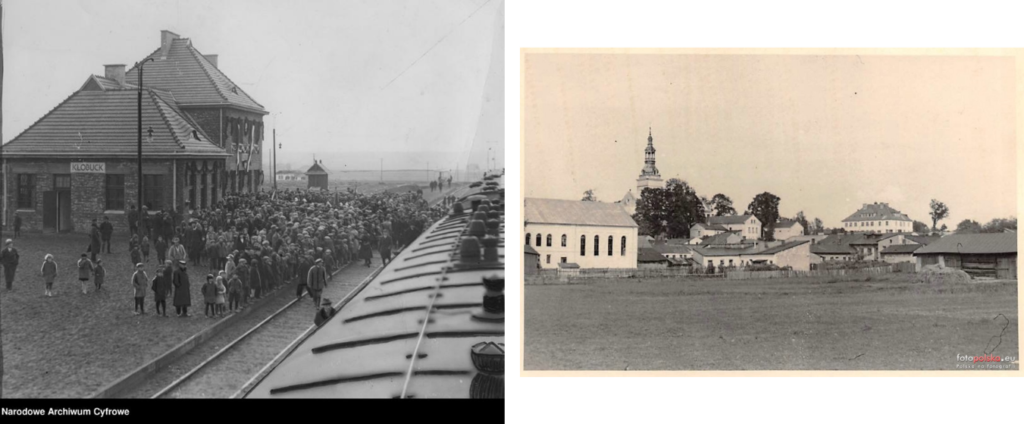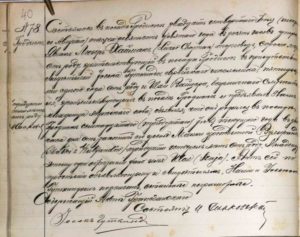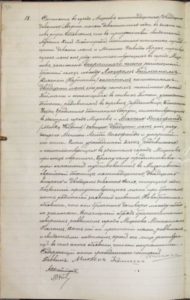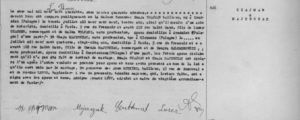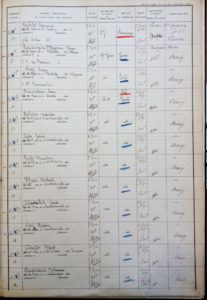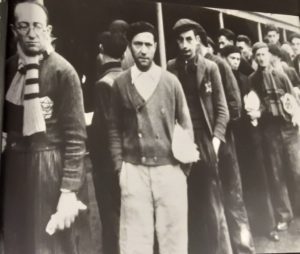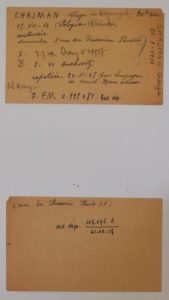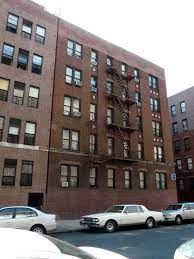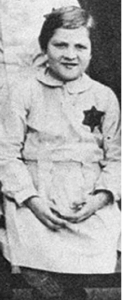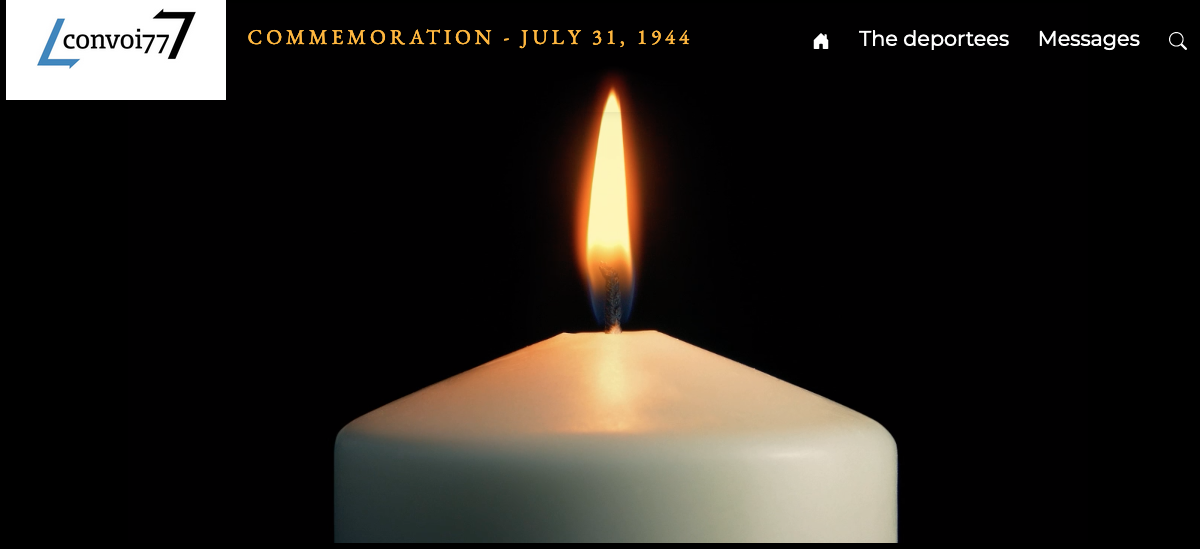Chaja CHAJMAN
Introduction
We are final-year students at the 1st Leon Kruczkowski High School in Tychy in Poland: Hania, Joasia, Marysia, Miłka and Nina. It was thanks to our history teacher, Ms. Natalia, that we became interested in the “Convoy 77” project. The subject of the Holocaust is nothing new to us, as we are volunteers at the Auschwitz-Birkenau National Museum in Oswiecim. We signed up for the project in November 2022. Our task was to uncover the story of Chaja Chajman née Hagerczak, who was originally from Kluczbork, a town in the Opolskie voivodship of Poland. In the course of our research, we worked with the Jewish Historical Institute, the National Archives in Częstochowa and the Auschwitz-Birkenau National Museum. We also drew on the resources of the United States Holocaust Memorial Museum, the POLIN Museum of the History of Polish Jews in Warsaw and the Polish National Digital Archives. We would particularly like to thank Mrs. Anna Przybyszewska-Drozd at the Jewish Historical Institute and Ms. Laurence Klejman in Paris.
Chaja Chajman’s birth and background
Chaja Chajman was born on July 15, 1914 in Kłobuck, Poland. Her parents were Chemia Majerczak and Dwojra Majerczak née Salomonowicz. Chaja’s parents’ marriage certificate can be found in the National Archives in Częstochowa (record number 88/1912). In the various documents, there are a number of variants of her surname: Hegerczak, Majerczak, Majerczik, Magerczal. We have chosen to use the name of Majerczak. Chaja’s birth certificate is nowhere to be found in the National Archives in Częstochowa; nor is her home address in Kłobuck. However, Chaja’s marriage certificate tells us that his father was a merchant. In Kłobuck’s Pinkas haKehillot (Encyclopedia of Jewish Communities), we find a reference to a woman named Dvorach, the wife of Nechamia Majerczik (perhaps she was Chaja’s mother), who was the first married woman in Kłobuck to uncover her hair. According to the same publication, a man called Meir Mayerczak (might he have been Chaja’s grandfather?) was a member of the delegation of Jews from Kłobuck who went to see the governor of Piotrków in 1896. They warned him that some Christians in the town were planning a pogrom.
Marriage record number 88/1912 of Chemia MAJERCZIK and Dwojra SALOMONOWICZ from collection 8/58 of the Civil Registry of the Bóżniczy district in Częstochowa from the years 1826-1938. (1946-1997).
The Majerczak, Salomonowicz and Chajman family tree
Kłobuck between the wars
In the interwar period, Kłobuck became part of the Kielce voivodship. In 1919, it was re-assigned as an urban district, having had this status withdrawn in 1870. According to the 1921 population census, 5222 people lived there, including 1647 Jews (31.54%). By 1939, the population had doubled, but the percentage of Jews had dropped to 27.6%. This may have been the result of the emigration of young Jews to Palestine or Western Europe, due to the Great Depression and the rise of anti-Semitism in the 1930s. In Kłobuck, a kahal (Jewish community) was founded in 1821. A new synagogue and Jewish cemetery were built, but these were destroyed during the Second World War. There were two prayer houses and a mikveh. The Jews in Kłobuck were very committed to their children’s education: the kahal financed a school and the conservative Aguda party ran another for the daughters of orthodox Bejt-Jaak families. There were also Jewish political parties and organizations. Jews played an important role in the city’s economic life, working as tailors, milliners, shoemakers, hairdressers and shopkeepers.
a : The rabbi of Kłobuck welcoming the governor of the voivodship of Kielce Władysław Dziadosz in 1935..
b : The mayor of Kłobuck Kuryłło passing the bread and the symbolic key of the city to the governor of the Kielce voivodship.
Kłobuck before the Holocaust. On the left, the inauguration of the new bus station in 1935. On the right, the Kłobuck synagogue in 1940 (on the left of the photo).
Chaja’s time in France
We do not know when or why Chaja left for France. We presume it was sometime in the 1930s. Her marriage certificate tells us that she had no job, but according to a more recent document, she was a dressmaker. Perhaps she learned the trade from her husband, who was also a dressmaker. We don’t know whether she met her future husband, Szaja Chajman, born on July 30, 1909 in Grodzisk Mazowiecki, before leaving Poland or after she arrived in France. When they got married on May 11, 1940, they were both living at the same address: 3 rue du Pressoir in Paris.
Szaja Hejman’s birth certificate, issued in Grodzisk Mazowiecki in 1909.
Marriage certificate of Szaja’s parents, Luzer and Malka née Wolfand, issued in Mszczonow in 1900.
Marriage certificate of Chaja Majerczak and Szaja Chajman, issued in Paris on May 11, 1940.
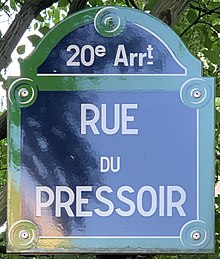
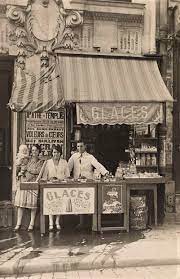
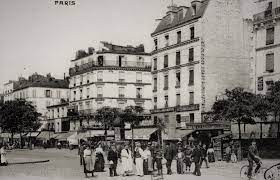
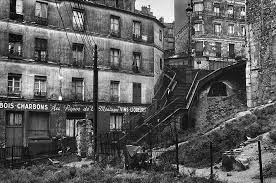

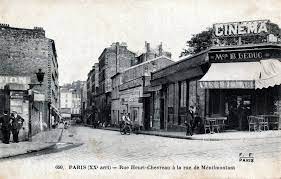
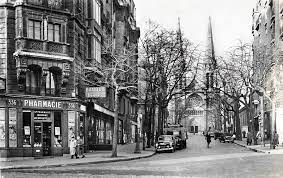
Rue du Pressoir, Paris
Source: Google Images
Paris-Drancy
On July 6, 1944, Chaja Chajman was arrested under orders from the Commissariat Général aux Questions Juives (General Commissariat for Jewish Affairs), which had been founded in 1941. The previous year, the German authorities and the Vichy regime had enacted a law on the status of Jews and another on the internment of foreigners of Jewish origin, authorizing them to be held in internment camps. On July 7, 1944, Chaja and others were transferred to Drancy internment camp, which had been open since 1941.
Jews in Drancy internment camp, between 1942 and 1944 (National Auschwitz-Birkenau Museum in Oświęcim).
DRANCY – AUSCHWITZ – BIRKENAU
On July 31, 1944, Chaja was deported on Convoy 77 from Drancy to the Auschwitz-Birkenau concentration and extermination camp. This information can be found on the United States Holocaust Museum website (Holocaust Survivors and Victims Database). As the historian Danuta Czech explains in her book entitled Kalendarz wydarzeń w KL Auschwitz (Calendar of events at KL Auschwitz): “At the end of the selection process, of the 1,300 people in RSHA convoy 77 from the Drancy camp in France, 291 Jewish men and 183 Jewish women were imprisoned in the camp under the respective numbers B-3673 to B-3963 and A-16652 to A-16834. The remaining 835 people were murdered in the gas chambers.”. No records were kept of Chaja’s imprisonment in Auschwitz. As we learn from the bulletin of the Former Prisoners’ Office: “(…) during the clearance and evacuation of the Auschwitz camp, by order of the SS camp authorities, all important personal files of prisoners and deportees were destroyed. The documents preserved in a fragmented state do not make it possible to establish complete and accurate information on all the people present in the camp.”.
Des Juifs dans le camp d’internement de Drancy, entre 1942 et 1944 (Musée National Auschwitz-Birkenau à Oświęcim).
RETURN TO PARIS
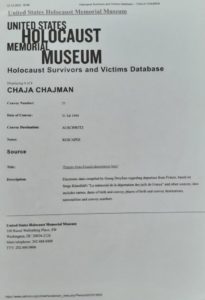 Chaja Chajman survived the Holocaust. She returned to Paris on May 20, 1945, after passing through Longuyon in the Grand-Est region of France. She returned to her previous address at 3 rue du Pressoir, in the Belleville district of Paris. Laurence Klejman writes that at that time, poor Jews lived and worked in this neighborhood, which these days is a mix of apartment buildings and public gardens. In 1950, Chaja moved to the United States with her husband. What happened to him when his wife was arrested is not known. They set up home at 1149 Stratford Ave. in the Bronx, New York. We have been unable to find out when she died.
Chaja Chajman survived the Holocaust. She returned to Paris on May 20, 1945, after passing through Longuyon in the Grand-Est region of France. She returned to her previous address at 3 rue du Pressoir, in the Belleville district of Paris. Laurence Klejman writes that at that time, poor Jews lived and worked in this neighborhood, which these days is a mix of apartment buildings and public gardens. In 1950, Chaja moved to the United States with her husband. What happened to him when his wife was arrested is not known. They set up home at 1149 Stratford Ave. in the Bronx, New York. We have been unable to find out when she died.
The record provided by Ms. Laurence Klejman with some information about Chaja.
Stratford Avenue in the Bronx, New York City
Source: apartments.com


 Français
Français Polski
Polski